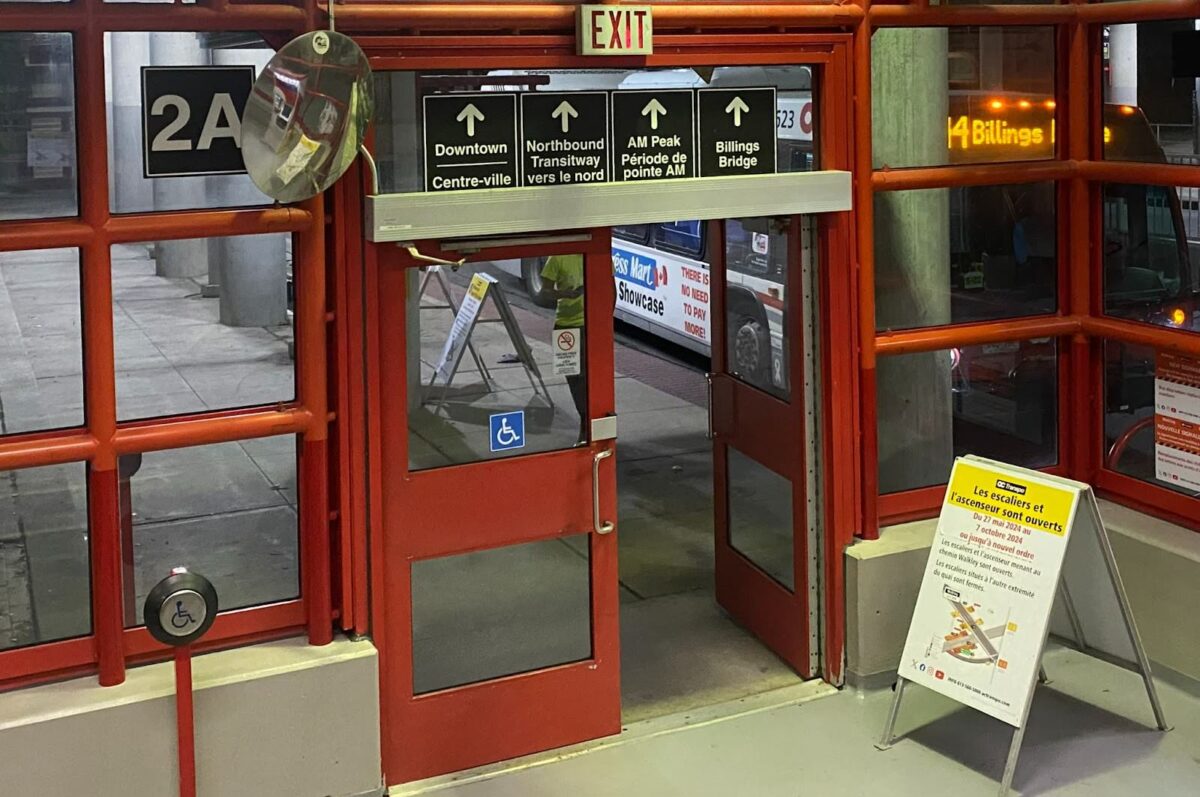Despite Statistics Canada indicating slowing inflation for public transit fares, the City of Ottawa is considering significant fare hikes, increased property taxes and service cuts as it debates the budget for 2025.
Those impending increases concern Ayesha Khan, a fourth-year student at Carleton University. She lives in Orléans and uses public transit to get to school.
She is worried about the impending increase despite having a tuition-paid bus pass, and so are many students at Ottawa universities and colleges who could still be affected if the city increases fares.
Khan’s commute to school usually takes her an hour and a half. It starts with a short walk of a few minutes from home to wait for the 38 Blair bus to Blair Station. There, she boards the O-Train to Hurdman station. From there, she grabs the 10 Lyon bus and arrives on campus after a short ride.
“If I had an 8:30 a.m. class, I would leave around seven,” Kahn said.
And that’s if everything goes to plan. Sometimes though the 38 “comes really late or sometimes it wouldn’t show at all,” she says.
In a statement earlier this month, Ottawa Mayor Mark Suttcliffe raised the possibility of a 75 per cent fare increase, sparking outrage from riders. The proposal would raise the price of one ride to $6.75.
Khan says it's already tough enough taking transit.
“I don’t think we should have to pay an extra amount to get on the bus. The city needs to fix where it’s putting its money and focus on these everyday resources that people use.”
Sutcliffe is pushing for financial help from the federal and provincial governments. In a press release, the mayor also called out the federal government for cutting their payments in lieu of paying property tax on government buildings. That funding helps pay for many municipal services.
The city also faces a $120 million deficit at OC Transpo, primarily caused by low ridership. This has many causes, including poor service, people working from home during and after the pandemic, and the lack of support from provincial and federal governments, which deepens the financial strain.
“It's unsettling to see it (the fare increase) is even an option, I don't think it's doing any favours for OC Transpo and the city as a whole,” said Transit Commissioner and Barrhaven East Coun. Wilson Lo.
Kari Glynes Elliott of the Ottawa Transit Riders advocacy group says Sutcliffe's actions were “a kind of class warfare. He’s arguing that we have a choice,” regarding tax increases or fare hikes.
“The 75 per cent fare increase proposed is an absolute worst-case scenario, and that also assumes no property tax increase and no money from the provincial or federal government. Seventy-five per cent is an extreme number if the council chose to go with fares only as a way to cover OC Transpo’s shortfall which we know will not happen.” Said Lo.
The councillor says he believes reduced ridership and rising operating costs are two of the most pressing issues discussed in transit commission meetings.
“The current model of funding transit is based on property taxes, fares, and government top-ups. Even though it’s been reliable for the last 125 years, this is a new world,” said Lo.
Service cuts, fare increases and a crackdown on fare compliance paint a grim picture for public transport users.
“It’s incumbent on the city and its leaders to come up with more creative solutions. Any way to get ridership back, the service has to come first,” said Lo, adding, "there will be a time where this all makes sense. Unfortunately, it's not any time soon.” Said Lo.

In the meantime, OC Transpo rider Khan says she worries about how her primary mode of transportation may affect her life in the future.
“Most of the stuff that I do is out of Orléans. Jobs, school, even if I want to hang out with my friends, it’ll have to be out of Orléans. I’m worried about that getting (harder) than it already is."
"I already feel there's been a lot of delays with public transportation services. Recently, I feel like I've been waiting longer for the train as well. It's been a hassle," she says.
As a 2025 graduate, Khan will soon be ineligible to continue using her U-Pass. She’s also worried about the impact of higher fares on other OC Transpo riders who don't have discounted passes.
“We already have to pay a pretty big fee to get on the bus if you don’t have a U-Pass. The bus system itself isn’t really improving for most people. Increasing the fare wouldn’t sit right with anybody,” Khan says.




